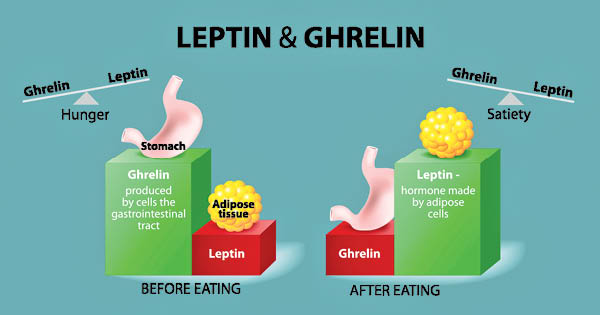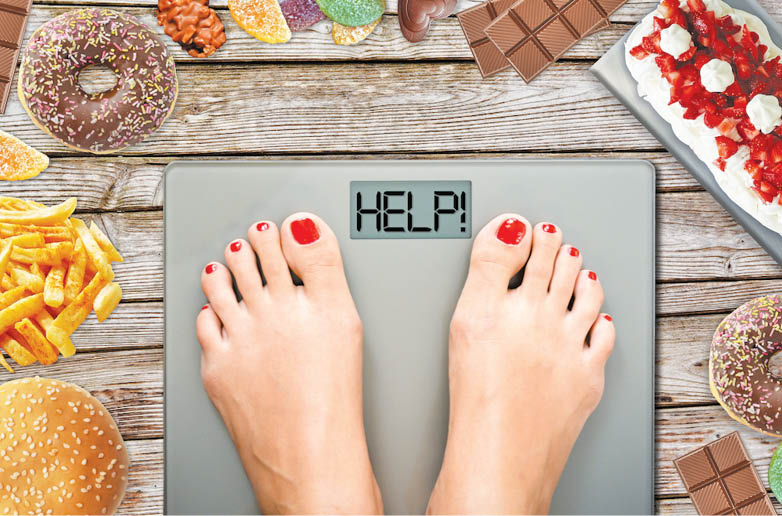Dr. Danesh D. Chinoy is a leading Health and Wellness Coach, Sports Physiotherapist and Psychologist. He is dedicated to helping all to heal holistically and remain fighting fit for life. Providing eye-opening and ground-breaking insights into Wellness, Dr. Chinoy’s two-decades’ rich expertise has won him innumerable awards, nationally and globally. His mission is to empower you to reach your highest levels of wellness/fitness. You can connect with Dr. Chinoy at: daneshchinoy@gmail.com .
Are you also wondering how to lose weight? Over the past few weeks, my inbox has been brimming with requests from readers trying to lose weight. Our conventional ideas about weight loss – ‘eat less, move more’ – requires a lot of willpower. Counting calories, exercising every day and fighting hunger! Eventually, people give up!
An excessive focus on counting calories has failed to reverse the obesity epidemic. Fortunately, there are better ways. Calories are not the only things that count in weight loss. Your weight is also hormonally influenced. Dubbed the ‘hunger hormone’ – Ghrelin is produced in the gastrointestinal tract. After a meal, your stomach distends and the secretion of ghrelin decreases. Simultaneously, Leptin, or the ‘satiety hormone’ increases, giving you a sensation of fullness and a signal is sent to your brain to stop eating.
The relationship between Ghrelin and Leptin begins to unravel in people dealing with obesity and/or diabetes. Just like the obese and diabetics develop insulin resistance, they also develop ‘Leptin Resistance’ – meaning the body is still producing leptin but does not react to it properly. When your body doesn’t acknowledge the “I’m full” hormone, your brain doesn’t get the message that you are full. The result? You overeat.
 Overeating due to Leptin Resistance leads to weight gain, making it even more difficult to lose weight fast. In fact, Leptin is closely related to insulin, so resistance to one hormone goes hand-in-hand with resistance to the other. If you reduce your hunger and the levels of your fat-storing hormone, insulin, you’ll have an easier time losing excess weight. Therapeutic Fasting is one of the best-known means to decrease both – Insulin and Leptin Resistance. I will devote a separate article on the health benefits of therapeutic fasting soon.
Overeating due to Leptin Resistance leads to weight gain, making it even more difficult to lose weight fast. In fact, Leptin is closely related to insulin, so resistance to one hormone goes hand-in-hand with resistance to the other. If you reduce your hunger and the levels of your fat-storing hormone, insulin, you’ll have an easier time losing excess weight. Therapeutic Fasting is one of the best-known means to decrease both – Insulin and Leptin Resistance. I will devote a separate article on the health benefits of therapeutic fasting soon.
It’s still possible to lose weight on any diet – just eat fewer calories than you burn, right? The problem with this over-simplistic advice is that it ignores the elephant in the room: hunger. Most people don’t like to “just eat less,” as it may result in having to go hungry forever. Sooner or later, many will likely give up and binge – leading to the prevalence of “yo-yo dieting.” Through functional medicine, regular exercise improves overall hormonal balance, weight and a sense of wellness.
While it should be possible to lose weight on any diet, some appear to make it easier. Sugar and starches may increase your hunger, while avoiding them helps manage your appetite better. Calories count, but you don’t need to get obsessed counting them. You may want to forget about the old “everything in moderation” diet motto. It certainly is not necessarily helpful advice for people who struggle with weight. In fact, it may do exactly the opposite. Don’t eat everything in moderation. Eat healthy food as much as you can, whenever you are hungry. Avoid unhealthy foods as much as possible.
To lose weight in a sustainable way, eat when you’re hungry – and only when you’re hungry. Forget the clock and listen to your body instead. Do you also believe breakfast is the most important meal of the day? Research studies beg to differ. Don’t eat if you’re not hungry. And this goes for any meal. Some people fear that they will lose control if they don’t eat every three hours. The concern that this “urge to binge” will blow their diets completely, making them obsessively snack all the time. Unfortunately, the WhatsApp university is full of self-proclaimed truths.
Tracking successful weight loss is a tricky game. Focusing primarily on kilograms and stepping on the scale everyday causes unnecessary anxiety and undermines your motivation. The scale is not necessarily your friend. You may want to lose fat – but the scale measures muscles, bones and internal organs as well. Weight or BMI are imperfect ways to measure your progress. Gaining muscle is our goal. Weight training and gaining muscle can hide your fat loss. Losing fat and gaining muscle means great progress, but you may miss this if you only measure your weight. It’s best to quantify body composition as you lose weight. You can do this with some easily available gadgets, but if not available, it is smart to simply measure your waist circumference.
It usually takes years to gain a lot of weight. Trying to lose it all as quickly as possible is not healthy and may be a recipe for “yo-yo dieting”. To succeed, you need something that works long term. In addition, you need to set realistic expectations for health and weight loss goals. It’s good to lose 1 or 2 kgs within the first week on a strict health-conscious diet, and then on average about half a kg per week, as long as you have some weight to lose.
This translates to about 22 kgs per year. However, weight loss doesn’t occur at the same rate in everyone. Every 3 kgs of fat loss roughly equals 1 inch lost around the waist. If you have an enormous amount of excess weight to lose, you could start out much faster — although initially, some of the weight you lose will be due to water loss. Exercising, particularly, weight training would enhance body composition. As you get closer to your ideal weight, the loss may slow down until you stabilize at a weight that your body feels right.
Have you ever wished for more hours of sleep and a less stressful life in general? Most people have – stress and lack of sleep can be bad news for weight. Chronic stress and inadequate sleep increases levels of stress hormones such as Cortisol in your body. This causes increased hunger and results in weight gain. If you’re looking to lose weight, you should also review possible ways to decrease or better handle excessive stress in your life. Ensure to get good sleep every night. If you’re the kind of person who always gets brutally woken up by the alarm ringing, you possibly are not giving your body adequate rest. Having a good night’s sleep helps reduce stress hormone levels.
Wishing you all good health and fitness always! Do keep writing in…
- Anatomy, Physiology And Physiotherapy: The Wacky World Inside You - 20 April2024
- Beyond Numbers: Being Kind To Your Body Post-40 - 16 March2024
- Marvels Of Lymphatic Drainage Demystified - 25 November2023
